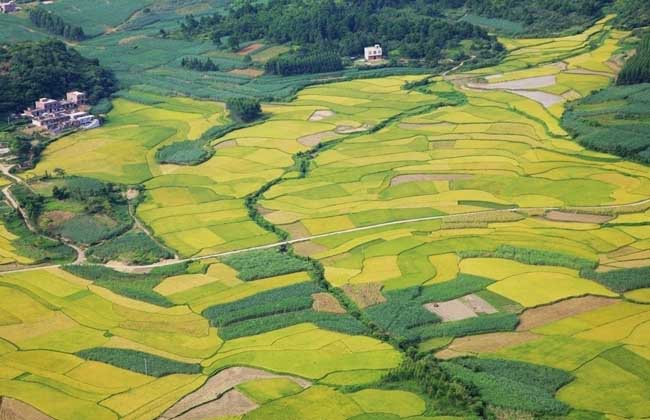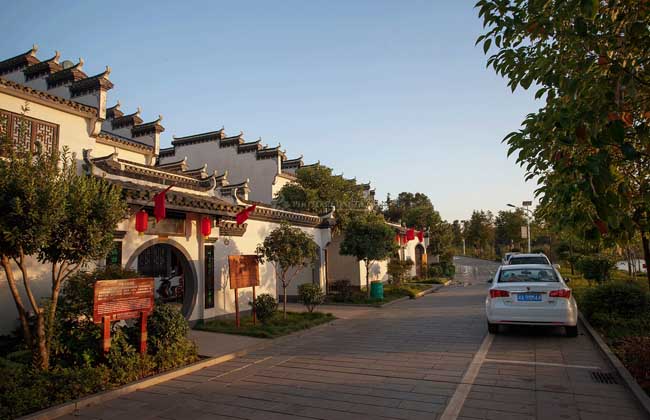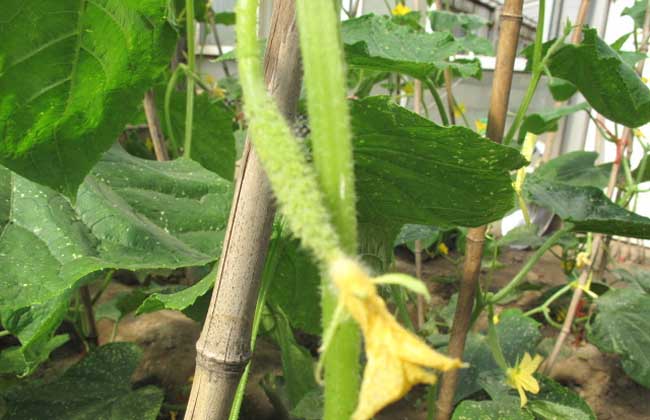The Future Development trend of Agriculture in China

"those who are good at fighting, ask for it from the potential." if agricultural enterprises want to break through in the region, they must first judge and have an insight into the situation, draw up development strategies with the help of favorable situations, and complete rapid transformation. China's agriculture is at the crossroads of economic transformation. The traditional agricultural development model over the past few decades has reached a bottleneck, and the advantage of labor cost is no longer obvious. Let's take a look at the future development trend of China's agriculture.
Trend 1: organic agriculture will usher in great development
As consumers pay more attention to food safety, organic food is gradually on the table of high-end consumers and become a healthy way of life. Some business celebrities have also begun to dabble in agriculture. Chu Shijian, former chairman of Hongta Group, planted "inspirational Orange", Liu Chuanzhi, chairman of Lenovo Holdings, sold "good pistachio", JD.com Mall CEO Liu Qiangdong sold self-grown organic rice, and Wang Jianlin, chairman of Wanda Group, also built an organic agricultural park on 5700 mu of Yanqing enclosure in Beijing. Among these agricultural products, "organic" has become a major selling point.
Although the price of organic food is usually 2050% higher than that of ordinary food, it is favored by consumers around the world because excessive use of chemical fertilizers and pesticides is prohibited, thus reducing the harm of food to the environment and the human body. At present, the share of organic products in the international market is growing rapidly. According to statistics, the consumption of organic food in China is growing rapidly at an annual rate of 3050%. China's organic food also has a huge international and domestic market demand.
Trend 2: attach importance to brand image
With the change of the relationship between supply and demand of agricultural products and the life style of consumers, consumers' requirements for agricultural products are no longer the requirements of quality and price, but higher and higher requirements for quality. In such an environment, entrepreneurs with vision and a sense of social responsibility begin to pay attention to the issue of brand image. On the one hand, they strictly control the quality of products and prevent problems at the source, on the other hand, they pay more attention to product design and strengthen publicity, so as to shape the brand image and build consumer confidence.
At the same time, the agricultural field has produced a lot of small and beautiful, small and strong agricultural products, such as palm grain, strawberry manor and other agricultural products, high-end design, exquisite products, excellent products and very unique, injecting new blood into China's agriculture. The current agricultural product market has changed from the competition of product price or quality to the competition of brand-led comprehensive strength such as popularity and reputation.
Trend 3: build the resource advantage of the whole industry chain
The extrusion of upstream raw material costs and downstream channel costs makes the industrial chain of enterprises extend upstream and downstream, and many enterprises begin to integrate resources and lay out the whole industrial chain. Cofco relies on the advantage of resources to do the whole industry chain, which is a successful model.
There are also many such examples among customers who wish to serve in the future, from sesame oil planting to deeply processed products, the meat industry from feed to self-built terminals, and e-commerce to do logistics on their own. All enterprises should integrate based on their own resources, build an industrial chain as far as possible, and firmly grasp the market initiative in their own hands. Therefore, in this sense, Zhiqi is very optimistic about the large food industry based on agriculture in the future, which has made great progress.
Trend 4: Channel layout from large and complete to small and sophisticated
The rising channel costs have overwhelmed enterprises, and traditional channels such as Shang Chao have become very cautious, and they are looking for new, more unique and more economical channels. This new channel depends not only on discovery, but also on innovation and integration.
Compared with the popularity of online stores and e-commerce, we see that enterprises begin to lay out new positions, while some offline channels change more quietly. For example, Tuotuo Commune, such as Xianfeng Network, chose not to enter KA (key customers) but ploughed deep into the channel, focusing on laying out the network, integrating all the convenience stores and community store resources in a city, bypassing the second batch of merchants and supplying goods directly, greatly reducing channel costs, and achieving no small results at all.
Trend 5: the use of emerging media is more widespread and mature
In recent years, the advertising cost of enterprises has been increasing, "entertainment restrictions" and "restrictions" have made TV advertising investment even worse, the power of traditional media has declined, and the role of emerging media has been rising.
New people and fashion people are also the main consumer groups. These groups are the "imperial screen generation", the screen has become a super terminal, mobile phones, computers are their most frequent means of access to information and network interaction. The operation of enterprises in emerging media will become more popular, especially the use of Weibo, Wechat, micro-video, micro-film and other means is very important.
Generally speaking, the effectiveness of traditional marketing methods is diminishing day by day, while new thinking and new methods have begun to appear. If the enterprise can size up the situation and seize the opportunity, it will be able to transform quickly. If we survive the economic winter, we will usher in a new world.
Related
- A course of planting techniques and methods on how to grow carrots
- How to plant the latest tulips?
- Is it better to pick tea in the morning or in the afternoon? When is the best time for tea to be picked? what is the third or fifth tea?
- Launch Yuanxiao Happy combination Haocha + Tea Yuan healthy Taste
- Penghu Tourism "Fireworks 20 Parade with You"
- 2022 West Lake Happiness holds "Digital Revitalization Voucher" and draws iphone13 and laptop.
- Banqiao Fuzhou social houses are designed to change start-up combined with police elimination to create a safe and livable environment
- The convenient measure of "mechanical weeding" in Xinbei has been abused and the Agriculture Bureau has imposed heavy penalties on the illegal land consolidation.
- Changgeng University Joins Hands with Four Memory Factories to Rescue Memory Talent Shortage
- The list of Taiwan's top 100 MVP managers is listed by the Director-General of the Farmers' Association of Sanxia District.



